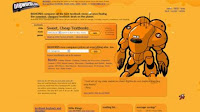
Many undergraduates who attend a career fair for the first time do not realize that their interview with a prospective company begins with the first conversation with a recruiter. Having helped a company recruit in the past, I can finally understand why making a strong first impression is very important. Impressing a recruiter can involve a number of things such as appearance, self confidence, and extensive knowledge of the company. When hundreds of students are vying for the same position, you need to make yourself stand out.
Typically the career centers of most college campuses prepare for career fairs in advance and will provide information on what the company does and what kind of positions they are hiring for. Trust me you’ll want to be as prepared as possible before attending a career fair. Do your research on the companies so that when you do talk to the recruiter you can tell them about yourself and why you feel you would fit in with the position they have posted. There’s nothing worse for a recruiter than having to explain the position to people over and over again. Trust me they already know who they want and don’t want once you open your mouth.
While you’re talking to the recruiter about yourself, you should also take the opportunity to ask questions about them. The more involved you are talking with a recruiter the better chance you may have getting an interview spot. Try to always get their business card so that you can follow up with them and possibly create a contact.
Most importantly, bring extra copies of your resume. Passing out your resume at a career fair is a long standing tradition, so make sure you have enough copies with you. I have unfortunately had had the experience of not bringing enough resumes requiring me run off to a nearby computer lab to print some more out taking away precious time talking to recruiters. My rule of thumb is to bring an extra 15 - 20 resumes on top of the one's you've already printed. You never know what company will show up at the last minute that is a great fit for you.













